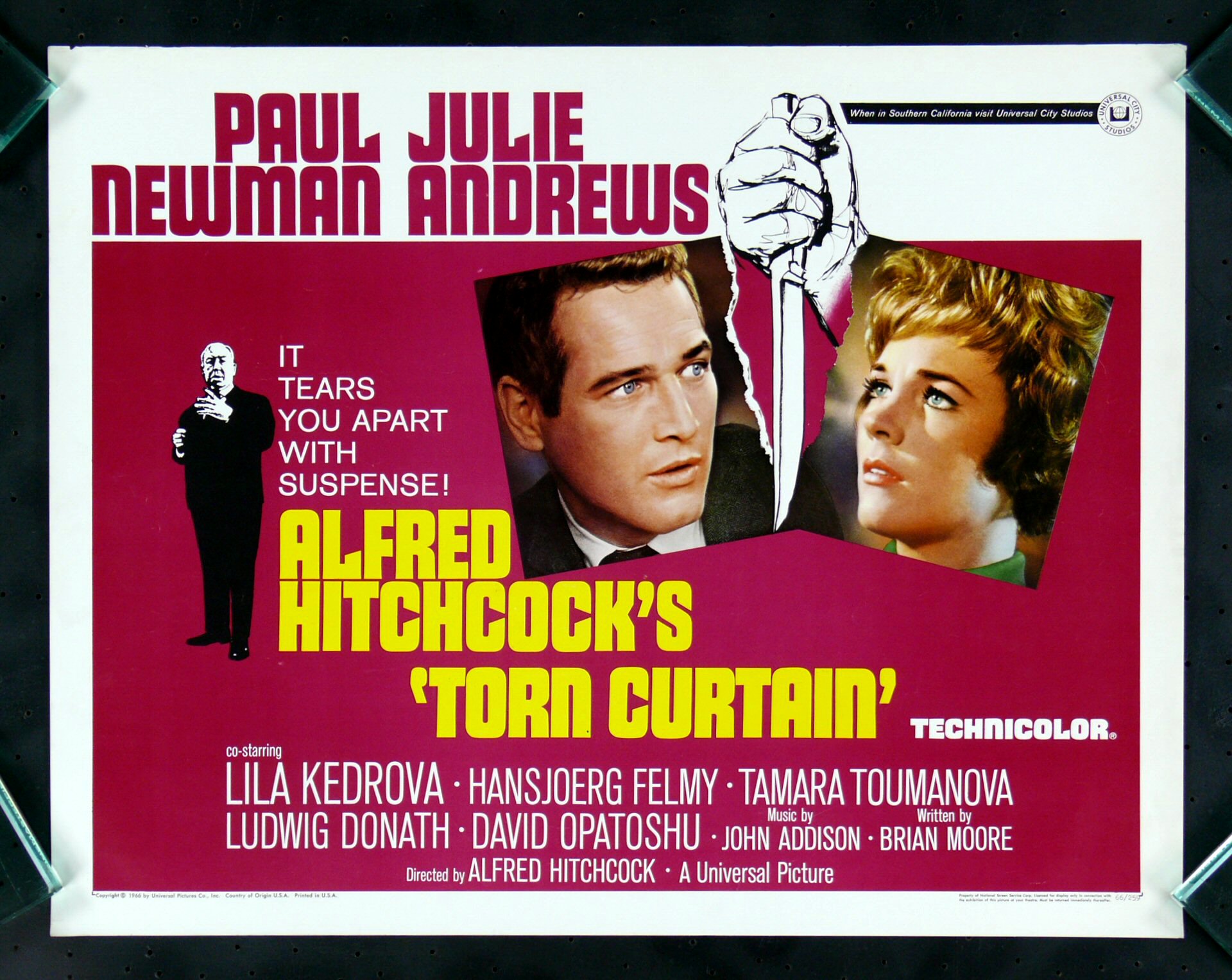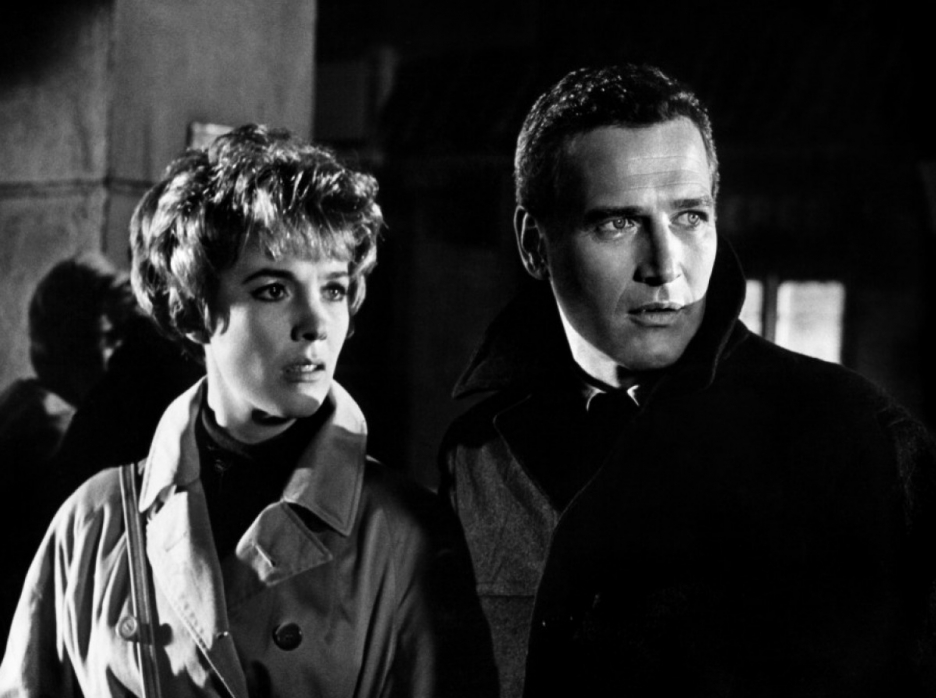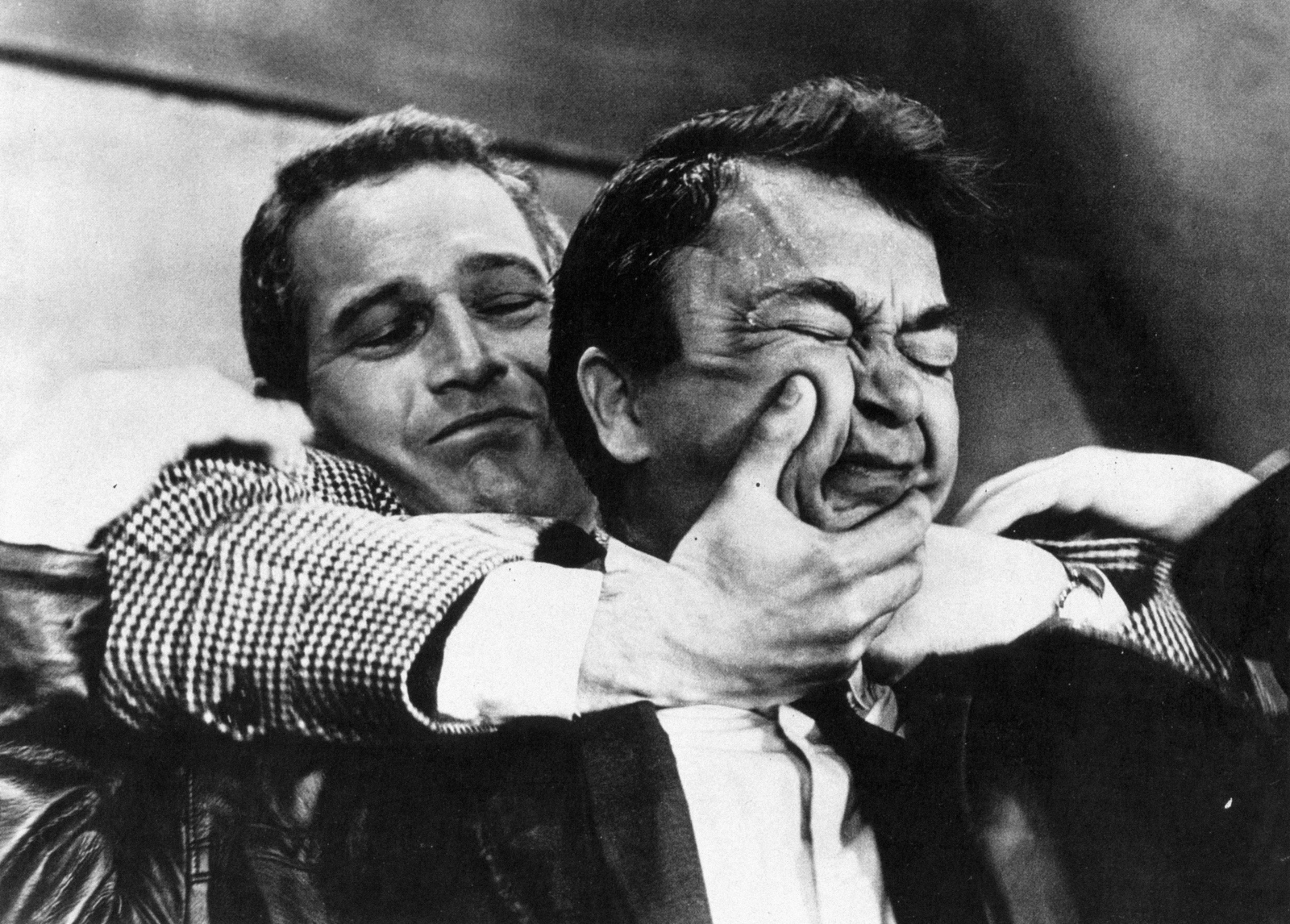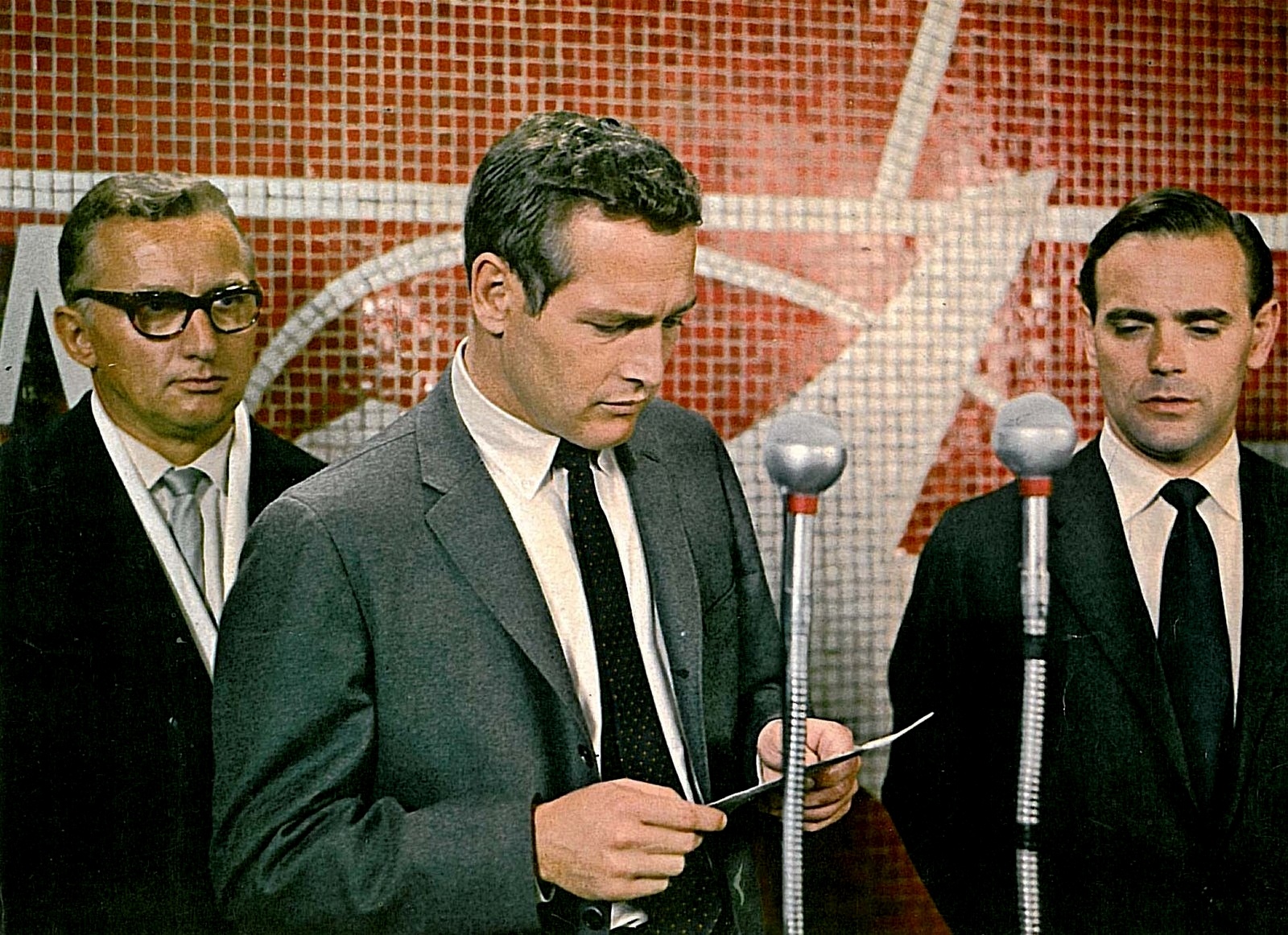Torn Curtain (1966)
 Tuesday, March 10, 2015 at 7:58PM
Tuesday, March 10, 2015 at 7:58PM 
I’ve often read that Marnie was Alfred Hitchcock’s last masterpiece. I actually had assumed The Birds was the more appropriate film for this title (and still do after seeing Marnie) but the general consensus seems to include these two films, at least from this writer’s point of view. Having said that, I was still intrigued by Torn Curtain: two starts in Paul Newman and Julie Andrews, an intriguing cold war plot made during the height of the cold war… what could go wrong?

Plenty apparently, though even plenty wrong Hitchcock is still better than most films from other directors. The story involves Professor Michael Armstrong (Paul Newman) and Sarah Sherman (Julie Andrews) as they partake in a conference for Physics. However Armstrong is up to something cloak and dagger-esque: he will defect to the east. His stunned fiancé doesn’t know what to make of this. But as we discover not too much longer later, neither do we…
First off, there are redeeming qualities in this picture. Most notable is a scene involving the death of a East German operative who is watching Armstrong, (played by Wolfgang Kieling in a wonderful but short performance). This scene certainly stands out in its attempt to portray the difficulty of killing a person (not that I’d know…) and is decently harrowing and suspenseful as two fairly unskilled characters attempt to take someone else out. The plot also has some minor twists and turns as it proceeds along keeping things unexpected, but by the halfway point nothing ends up being unpredictable anymore, and characters are unfortunately uncared about (at least by this viewer).

In fact besides the murder of the East German operative, nothing is really suspenseful or interesting for that matter. Gone is Bernard Herrmann’s wondrous score (he was fired after he didn’t respond well to Hitch/production company’s instruction to go more mainstream, or produce a hit song, or some other bullshit: it’s Bernard Herrmann, let him do his thing!), editor George Tomasini, and much of the originality and vibrancy audiences had become used to with Hitch’s films. I can’ even recall a specific MacGuffin, or at least a vital and memorable one.

It’s almost as if Hitch lost his memory, watched all of the films in his filmography, and tried to copy himself. This self-plagiarism shouldn’t be deemed that bad, but it’s so painfully obvious in scenes such as an opera set piece meant to be for suspense (he’s already used that at least twice, in The Man Who Knew Too Much and it’s superior remake) that he doesn’t even seem to be trying. Other times he has the two main characters/lovebirds on the run in various scenarios that could seem fun, but are just dull and unconnected such as an escape on a public bus, their meeting a character who wants to escape the east but needs them as much as they need her… I believe it may have been more relevant for someone watching it during that period, but for this viewer it was fairly uninspired.
“Unmemorable” isn’t a word I generally associate with Hitch, but maybe that’s how he felt about this whole production and so evoked his feelings on screen. After all, he hardly seems to be present at all (save for his quintessential cameo. I would recommend you leave this one alone too.



Reader Comments